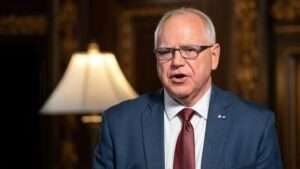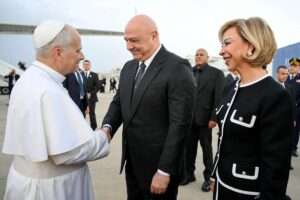By Nash Seman
October 10, 2025, Abdul El Sayed, a physician and former public health official, is the Democratic candidate for Michigans open US Senate seat in 2026. The seat, vacated by retiring Senator Gary Peters, is a key battleground. El Sayeds campaign focuses on universal healthcare, affordable housing, and environmental justice, backed by progressives like Senator Bernie Sanders. However, a 2012 pledge allegedly tying him to Mohammed Morsi and the Muslim Brotherhood has resurfaced, raising questions about his past and its relevance today.
The 2012 Pledge: Alleged Muslim Brotherhood Ties.
In 2012, during Egypts Arab Spring, El Sayed, then a young public health advocate and son of Egyptian immigrants, reportedly signed a pledge supporting Mohammed Morsi, the Muslim Brotherhoods presidential candidate. Morsi, Egypts leader from 2012 to 2013, represented the Brotherhood, an Islamist group founded in 1928 by Hassan al Banna. Its motto, recited by Morsi in speeches, includes: The Quran is our constitution, the Prophet Mohammed is our leader, jihad is our path, and death for the sake of Allah is our highest aspiration.
This pledge, publicized during El Sayeds 2018 gubernatorial run, sparked controversy. Critics saw it as endorsing the Brotherhoods ideology, labeled terrorist by countries like Egypt and Saudi Arabia for ties to extremist groups. The issue contributed to El Sayeds loss in the 2018 Democratic primary, where he got 30% of the vote but lost to Gretchen Whitmer.
El Sayed calls accusations of extremism a misrepresentation, noting his platform supports progressive values like womens rights, clashing with the Brotherhoods views. Fact checkers confirm the pledges existence but find no evidence he backs violence or Sharia law in the US. Supporters say the pledge reflected cultural ties to Egypt during its democratic transition, not theocracy.
El Sayeds Background and 2026 Campaign.
Born in Michigan to Egyptian parents, El Sayed, 40, has a public health career. He was Detroits Health Officer from 2015 to 2017 and Wayne Countys Health Director from 2023 until April 2025, when he resigned to run for Senate. His platform pushes for ending medical debt, expanding clean energy, and supporting workers. These appeal to Michigans diverse voters, including its growing Arab American community in Dearborn, where Muslims make up over 5% of the states population.
In 2018, as a Justice Democrat, El Sayed proposed abolishing ICE, drawing criticism for aligning with anti border policies. The term justice was scrutinized, as it translates to Sharia in Arabic and was used by Morsis Freedom and Justice Party. El Sayed insists his use aligns with progressive ideals, not Islamism.
Implications for Michigan.
The 2012 pledge raises questions about political loyalty and identity in a polarized time. Michigan, a swing state, has seen rising tensions, with FBI data showing a 25% rise in anti Semitic incidents nationwide since 2023. Some argue El Sayeds pledge, invoking jihad and Sharia, conflicts with the US Constitutions supremacy under Article VI. Others say his public service record shows commitment to American values.
Both parties face pressure. Democrats must decide if El Sayeds progressive stance outweighs the controversy, while Republicans may use the pledge to win voters. Michigans diverse electorate will decide if his past overshadows his present.
Call for Clarity.
As 2026 nears, voters need transparency. El Sayed could clarify the pledges context and release related documents. Both parties should discuss balancing cultural heritage with public office duties. Michigans Senate race tests how America handles faith, identity, and governance.















